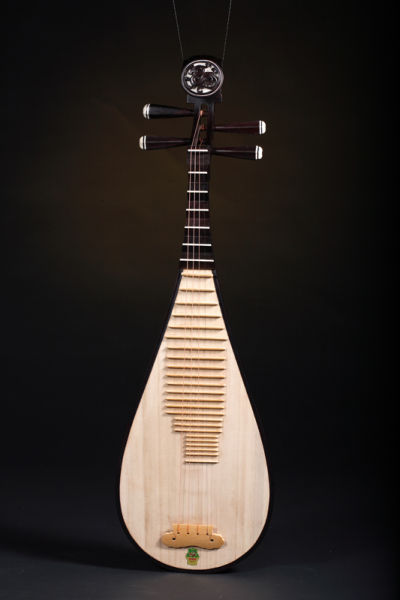Eight maintenance methods for the lute
There are eight maintenance methods for the national musical instrument Pipa, which will be introduced next.

1. When not playing the piano, keep the piano in the piano case. If you do not put the piano case, you can put the piano on the table, or prevent it from being placed on the special A-frame for pipa, and cover it with a thin gauze to prevent dust from falling. When laying it horizontally, put a small pillow on the back of the handle to let the piano recline on the table to reduce the pressure on the head;
2. You can usually rub some walnut oil on the surface of the compound hand to make the sound softer, especially for the northern piano;
3. If you want to protect the piano well, try not to take the piano out of the house. Although some babies are unavoidable in normal classes, this will indeed bump the piano to varying degrees, making the piano easy to have problems with small details, such as the splicing of the phase and the phase is easy to crack, and the splicing of the headstock is easy to crack. If you must take it out, the most important thing is not to put the pipa in the trunk of the car, the trunk is a closed space, the temperature of direct sunlight is extremely high, it is easy to be deformed, the body is easy to crack, or the panel is deformed, which affects the sound;
4. Pipa cannot be placed on the heating and floor heating, nor can it be close to the heating. If the climate is too dry, you can apply some mahogany maintenance oil. If the climate is humid, it is not recommended to use it. You can put some desiccant in the piano box.
5. Always prepare a cloth for wiping the piano, and always keep the body and headstock clean. Remember to wash your hands and dry before using the piano. For those who are prone to sweating in hot weather, be sure to clean the strings after practicing the piano. You can also apply a protective pen to avoid rusting. If the strings are rusted, it is recommended to change a string. Usually, you need to prepare an extra set of spare strings, and you can prepare a little more for one string;
6. At present, when gluing panels and heads, water glues such as yellow fish glue are generally used. This kind of glue will degumming when it is wet. After degumming, the volume will be weakened and the sound will be more damaged. Therefore, it should not be placed in a damp place, nor should it be exposed to rain, and the pipa should not be exposed to moisture.
7. Friends with humid climate in the south, pay special attention, wipe the piano with a dry cloth and put it in a moisture-proof bag when it is not in use, so that it is not easy to get moldy.
8. Remember, do not put the piano in a situation where the temperature difference changes drastically, so as not to crack the piano. Regarding the issue of the north-south piano, if it is brought from the south to the north at once in winter, the sharp temperature difference may cause the piano to crack, so it is best to move the piano in summer when the temperature difference between the north and south is not large.
 渝公网安备 50010702504639号
渝公网安备 50010702504639号